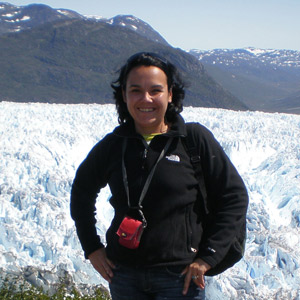BIO
A writer on daily newspaper ABC since 1997, Araceli Acosta has spent the last fifteen years in charge of environmental news. She has also served as editor of the monthly supplement Natural and coordinator of Canal Natural, a website dealing exclusively in environmental questions. She has authored around two thousand five hundred articles on subjects ranging from the geographically close to home, like the aftermath of the Prestige oil spill, to global concerns such as climate change; from politically controversial issues, like Spain’s shortage of water, to stories of a purely informative nature.
CONTRIBUTION
Among her most impactful contributions has been the series titled “Travels in Dry Spain”, published in summer 2005, describing the state of the country’s river basins during a prolonged period of drought. Issues of water and its lack have also taken Acosta to such celebrated natural spaces as Doñana, Tablas de Daimiel or Garajonay, where her on-the-spot reports have covered topics ranging from the recovery of the Iberian lynx to the conservation of vultures in Monfragüe; from Picos de Europa capercaillies to the houbara bustard in the Canary Islands by way of the turtles and cetaceans affected by the Prestige oil spill.
Internationally, Acosta has been her paper’s correspondent at UN world summits on climate change and has chronicled the effects of planetary warming on some of the worst hit regions, including Greenland. Indeed, outside Spain, the destinations that have most impressed her are Greenland and Sumatra. She travelled to the Arctic in 2008: “It was quite something to be on the front line of where climate change is making its effects felt.” The appearance of mosquitoes where rising temperatures have caused increasingly early thaws; vanishing glaciers; a community learning farming techniques in anticipation that their lands will shortly be cultivable. “I was able to see live everything I had been told was happening.” In Sumatra, she was witness to how the tropical forest is being razed so the land can be planted with crops for biofuel production, and to the threat this poses for numerous species.

